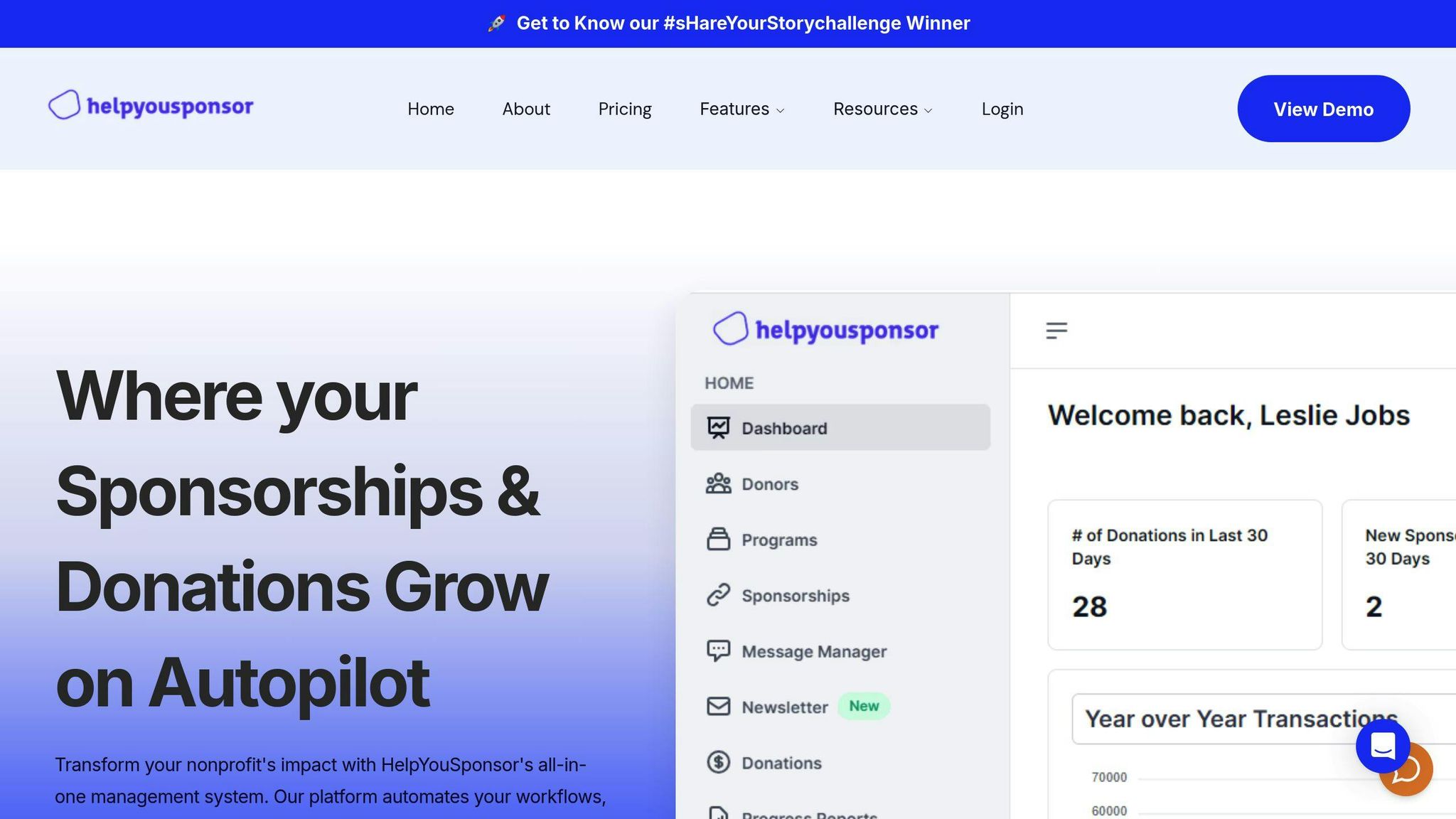Reputable Child Sponsorship Programs: Due Diligence Guide
Learn how to choose reputable child sponsorship programs by evaluating transparency, impact, and compliance for effective donations.

Want to ensure your donations make a real impact? Choosing the right child sponsorship program requires careful evaluation. This guide simplifies the process by focusing on three key areas:
- Transparency: Look for clear financial reports and organizations spending at least 80% on programs.
- Impact: Assess measurable results in education, health, and community development.
- Compliance: Check for strong child protection policies and adherence to legal standards.
Use tools like comparison tables and platforms such as HelpYouSponsor to track program efficiency and outcomes. Programs like Compassion International and World Vision set the benchmark for accountability and results.
Start here to make informed, impactful decisions.
Criteria for Assessing Child Sponsorship Programs
Financial Reporting Transparency
Clear and honest financial reporting is essential for building trust in child sponsorship programs. For example, Compassion International limits administrative and fundraising expenses to 20%, allowing 92% of donations to directly benefit sponsored children by funding education, healthcare, and community support.
Some key financial practices to look for include:
- Spending at least 80% of funds on program activities
- Conducting independent audits annually
- Providing detailed cost breakdowns
- Sharing regular financial updates with the public
While transparency ensures donations are used responsibly, understanding the program's actual impact is equally important.
Evaluating Program Impact
Assessing a program's impact goes beyond just financial accountability - it’s about real outcomes. For instance, Children Incorporated highlights their success by tracking educational achievements, such as academic progress and student retention rates.
Key impact areas include:
- Child-Level Results: Improvements in education, health, and nutrition
- Community Growth: Better infrastructure and economic development
- Long-Term Results: Programs that lead to lasting improvements
Measuring these results helps determine whether a program is making a difference. At the same time, following legal and ethical standards ensures the program operates responsibly.
Compliance with Legal Standards
Organizations like UNICEF and Plan International follow global regulations and transparent practices to maintain credibility and protect both donors and children.
Essential compliance measures include:
- Certification as a nonprofit organization
- Strong child protection policies
- Secure handling of sensitive data
- Adherence to international child welfare guidelines
These legal and ethical safeguards reinforce the trustworthiness of child sponsorship programs.
Tools for Effective Due Diligence
Using Comparison Tables
Structured tools are key for evaluating programs systematically during due diligence. Comparison tables allow donors to objectively assess programs by focusing on measurable criteria:
| Evaluation Criteria | Key Indicators | Target Benchmarks |
|---|---|---|
| Financial Efficiency | Program-to-Admin Ratio | At least 80% to Programs |
| Annual Audit Results | Independently Verified | |
| Cost per Child | Detailed Breakdown | |
| Impact Measurement | Education Outcomes | Monitored Progress |
| Healthcare Access | Regular Updates | |
| Community Development | Documented Changes | |
| Transparency | Financial Reports | Quarterly/Annual |
| Child Updates | Monthly/Quarterly | |
| Impact Documentation | Consistently Published |
Rely on verified data from reports and evaluations to pinpoint programs that meet high standards for accountability and measurable results.
Examples of Reputable Programs
Organizations like World Vision and Children International set the standard for transparency and impact reporting. Their comprehensive documentation offers a clear view of program success.
"Donors can assess impact by looking at metrics such as education rates, healthcare improvements, and community development outcomes. Programs like World Vision and Children International provide detailed reports on these metrics to help donors understand the broader impact of their contributions"
Top organizations also leverage technology platforms such as HelpYouSponsor to provide real-time tracking of sponsorship outcomes. These platforms ensure donors receive consistent updates on their contributions. When selecting programs, prioritize those that:
- Publish detailed, measurable impact reports
- Use modern technology to enhance transparency
- Maintain open and regular communication with donors
Identifying trustworthy programs is just the first step. Integrating technology can streamline program management and deepen donor engagement.
Related video from YouTube
Using Technology to Improve Program Management
Modern technology has reshaped how child sponsorship programs operate, bringing greater transparency, efficiency, and donor involvement while ensuring sensitive data is protected. Beyond simply identifying trustworthy programs, technology is a key tool for managing sponsorship efforts effectively.
How HelpYouSponsor Supports Program Management

HelpYouSponsor provides tailored tools for child sponsorship programs, all accessible through a user-friendly platform:
| Feature | What It Does | Why It Matters |
|---|---|---|
| Donor Tracking | Real-time donation tracking | Builds trust with donors |
| Campaign Management | Automated fundraising tools | Saves time and effort |
| Sponsorship Dashboard | Centralized program management | Keeps everything organized |
| Data Security | Protects sensitive information | Ensures compliance |
Organizations using platforms like HelpYouSponsor or Compassion International report smoother operations and stronger connections with donors, thanks to improved communication and regular updates.
HelpYouSponsor's Pricing Options
HelpYouSponsor offers flexible pricing to fit different needs:
- Free Plan: Manage up to 10 commitments at no cost
- Pro Plan: $39/month for up to 80 commitments
- Max Plan: Pay-as-you-go at $0.50 per commitment
For any organization, safeguarding data should remain a top priority. Implementing regular system checks and strict privacy measures ensures sensitive information stays secure while maintaining transparency. These tools not only simplify daily tasks but also provide the clarity and data donors need to feel confident in their contributions.
Conclusion: Making Informed Decisions
Selecting a child sponsorship program requires thoughtful consideration. Focusing on factors like financial transparency, measurable outcomes, and adherence to standards helps ensure your donations make a meaningful difference. Technology plays a key role here, offering tools that improve visibility and accountability.
For a more straightforward evaluation, check out the comparison table in the Tools section. It provides detailed criteria to guide your decision-making. Organizations such as Compassion International and Convoy of Hope set strong examples by offering clear financial reports and maintaining open communication with their donors.
Staying informed doesn’t stop at the initial choice. Regular monitoring and reassessment are essential. Platforms like HelpYouSponsor add value to traditional evaluation methods by offering features that improve reporting and foster trust between donors and organizations. These tools make managing sponsorships more efficient while reinforcing donor confidence.

